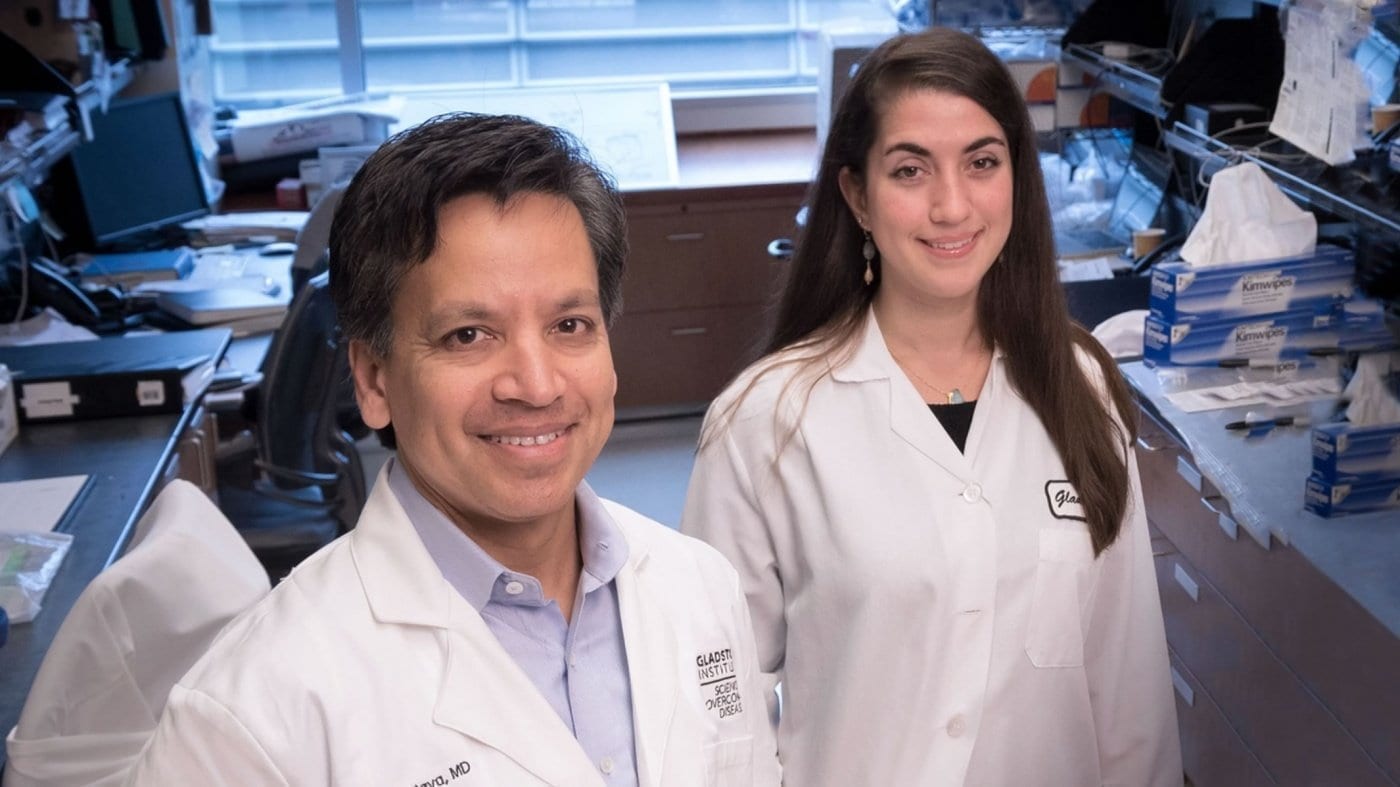
Elderly mice suffering from age-related heart disease saw a significant improvement in cardiac function after being treated with the FDA-approved drug rapamycin for just three months.
The research, led by a team of scientists at the Buck Institute for Research on Aging, shows how rapamycin impacts mammalian tissues, providing functional insights and possible benefits for a drug that has been shown to extend the lifespan of mice as much as 14 percent. There are implications for human health in the research appearing online in Aging Cell: heart disease is the leading cause of death in the U.S., claiming nearly 600,000 lives per year.
Rapamycin is an immunosuppressant drug which can be used to help prevent organ rejection after transplantation. It is also included in treatment regimens for some cancers. In this study, rapamycin was added to the diets of mice that were 24 months old – the human equivalent of 70 to 75 years of age. Similar to humans, the aged mice exhibited enlarged hearts, a general thickening of the heart wall and a reduced efficiency in the hearts ability to pump blood.
The mice were examined with ultrasound echocardiography before and after the three-month treatment period – using metrics closely paralleling those used in humans. Buck Institute faculty Simon Melov, PhD, the senior author of the study, said age-related cardiac dysfunction was either slowed or reversed in the treated mice. “When we measured the efficiency of how the heart pumps blood, the treated mice showed a remarkable improvement from where they started. In contrast, the untreated mice saw a general decline in pumping efficiency at the end of the same three month period,” he said. “This study provides the first evidence that age-related heart dysfunction can be improved even in late life via appropriate drug treatment,” added Melov, who said the treated mice saw a reduction in heart size, reduced stress signaling in heart tissues and a reduction in inflammation.
Buck researchers, utilizing genome analysis tools, uncovered suites of related genes which rapamycin modulates in the heart. “Rapamycin affected the expression of genes involved in calcium regulation, mitochondrial metabolism, hypertrophy and inflammation,” said Melov. “We also carried out behavioral assessments which showed the treated mice spent more time on running wheels than the mice who aged without intervention.”
“Little has been known about the functional ramifications of rapamycin in mammalian tissues,” said Buck Institute President and CEO Brian Kennedy, PhD, a co-author of the paper. “These findings are significant because we have no interest in simply extending lifespan without an accompanying improvement in the health and quality of life.” He added, “It is particularly encouraging that, in this case, an already-approved drug that extends lifespan also improved function late in life.”
The Latest Bing News on:
Age-Related Heart Disease
- Irregular bone marrow cells may increase heart disease riskon April 26, 2024 at 4:00 am
Over time, bone marrow stem cells develop key genetic errors and pass them on to immune cells. This may increase the risk of developing heart disease.
- Air pollution and depression linked with heart disease deaths in middle-aged adultson April 26, 2024 at 1:40 am
A study in more than 3,000 US counties, with 315 million residents, has suggested that air pollution is linked with stress and depression, putting under-65-year-olds at increased risk of dying from ...
- Study: Women with heart disease prescribed cholesterol-lowering drugs less often than menon April 25, 2024 at 3:36 am
Women with heart disease may be prescribed cholesterol-reducing statins less frequently than men, contravening recommended treatment guidelines, according to new research released Thursday.
- Decline in heart failure deaths has been undone, led by people under 45on April 24, 2024 at 9:04 am
In heart failure, "the paradox is that at a time that we're seeing these increases in mortality, we also have access to better medications,” Mount Sinai Morningside's chief of cardiology said.
- Coronary Heart Disease and Pregnancyon April 23, 2024 at 5:00 pm
Since women are delaying childbearing until older age, acute coronary syndrome ... the available information about pregnancy-related coronary heart disease. Yusuf Karamermer, Thorax Center ...
- Women’s Heart Disease Is Underdiagnosed, but New AI Models Can Help Remedy Thison April 23, 2024 at 12:56 pm
Machine learning allows for more accurate predictions of heart disease risk, highlights need for sex-specific criteria ...
- Has COVID set us up for a major heart disease epidemic? It’s happened beforeon April 18, 2024 at 2:57 am
Over the first half of the 20th century the world saw growing rates of heart disease mortality. From the 1920s to the 1960s more and more people were dying from heart attacks. It was described as an ...
- Is Hormone Replacement Therapy for Menopause *Also* Good for Your Heart? It Could Come Down to Timingon April 14, 2024 at 4:30 am
Hormone replacement therapy (or HRT) can help reduce menopause symptoms, but some studies suggest it may protect your heart as you age, too. Learn more about the HRT and heart disease connection here.
- Study: Gum disease treatment after heart rhythm ablation reduced risk of recurring AFibon April 10, 2024 at 12:01 am
with incidence rising with age. Related Mouth rinse might spot early heart disease risk, study says Treatment for gum disease may not benefit heavy smokers Dentists' water lines linked to rare ...
- 5 Inflammatory Foods That Could Be Raising Your Risk Of Heart Disease, Obesity And Age-Related Diseases, According To Health Expertson March 17, 2024 at 4:16 am
To learn about a few of the worst inflammatory foods that could contribute to your risk of heart disease ... increasing the risk of obesity and age-related diseases. When in doubt, go with ...
The Latest Google Headlines on:
Age-Related Heart Disease
[google_news title=”” keyword=”Age-Related Heart Disease” num_posts=”10″ blurb_length=”0″ show_thumb=”left”]
The Latest Bing News on:
Rapamycin
- Why Is Biodexa (BDRX) Up 70% Today?on April 26, 2024 at 4:18 pm
Oncology specialist Biodexa inked a compelling licensing deal to treat a serious disease, and BDRX stock popped sharply higher.More From InvestorPlace The #1 AI Investment Might Be This Company You’ve ...
- Biodexa Enters Into Exclusive License to eRapa™, a Phase 3 Ready Asset for the Treatment of Familial Adenomatous Polyposis (FAP)on April 26, 2024 at 7:30 am
Biodexa Enters Into Exclusive License to eRapa™, a Phase 3 Ready Asset for the Treatment of Familial Adenomatous Polyposis (FAP) Worldwide rights come with $17 million in non-dilutive grant funding ...
- Biodexa shares rally 126% on rapamycin licensing dealon April 26, 2024 at 6:56 am
Shares of Biodexa (NASDAQ:BDRX) soared 126% in early trading Friday after the company announced it had entered into an exclusive worldwide license to develop and commercialize eRapa, also known as ...
- Science is closing in on the frailties of old ageon April 26, 2024 at 6:00 am
Research is finding way to extend animal lifespans but regulators are still wary of treating ageing as a disease ...
- Top 6 Best Rapamycin Supplements in 2024on April 25, 2024 at 5:00 pm
Rapamycin, a natural compound, has shown anti-aging and health benefits in various researches. Consequently, the popularity and demand for rapamycin supplements have surged significantly in the ...
- Could delaying menopause boost women's health? 1 woman shares her storyon April 25, 2024 at 4:56 am
(Double-blind means no one knows who receives the treatment and who receives the placebo.) Subjects are randomized to receive either rapamycin or a placebo. For three months, participants take a pill, ...
- Experimental Ovarian Tissue Freezing Could Delay Menopause, but Experts Are Weighing the Riskson April 22, 2024 at 5:00 am
Extracting, freezing and retransplanting slices of hormone-producing ovarian tissue could postpone menopause, but some experts say it’s not effective enough—or necessary ...
- Rapamycin: The Drug with a Potential to Extend Life and Combat Age-Related Diseaseson April 18, 2024 at 12:07 pm
Rapamycin, a drug traditionally used to prevent organ transplant rejection, has garnered attention for its potential as a longevity enhancer and a combatant against age-related diseases. The ...
- The role of TOR signaling in enhancing graft success and crop vigoron April 16, 2024 at 11:24 am
A research team has delved into the Target of Rapamycin (TOR) signaling pathway in plant grafting, emphasizing its role in regulating seedling vigor, graft junction healing, and shoot-to-root ...
- Social Media Claims This FDA-Approved Pill Can Slow Down Aging. Can It?on April 16, 2024 at 4:01 am
Age discrimination is rampant, and beauty standards favor youth. So it’s no wonder that people do anything they can to push back on aging, whether that’s using Botox for fewer wrinkles, hair dye to ...
The Latest Google Headlines on:
Rapamycin
[google_news title=”” keyword=”rapamycin ” num_posts=”10″ blurb_length=”0″ show_thumb=”left”]










